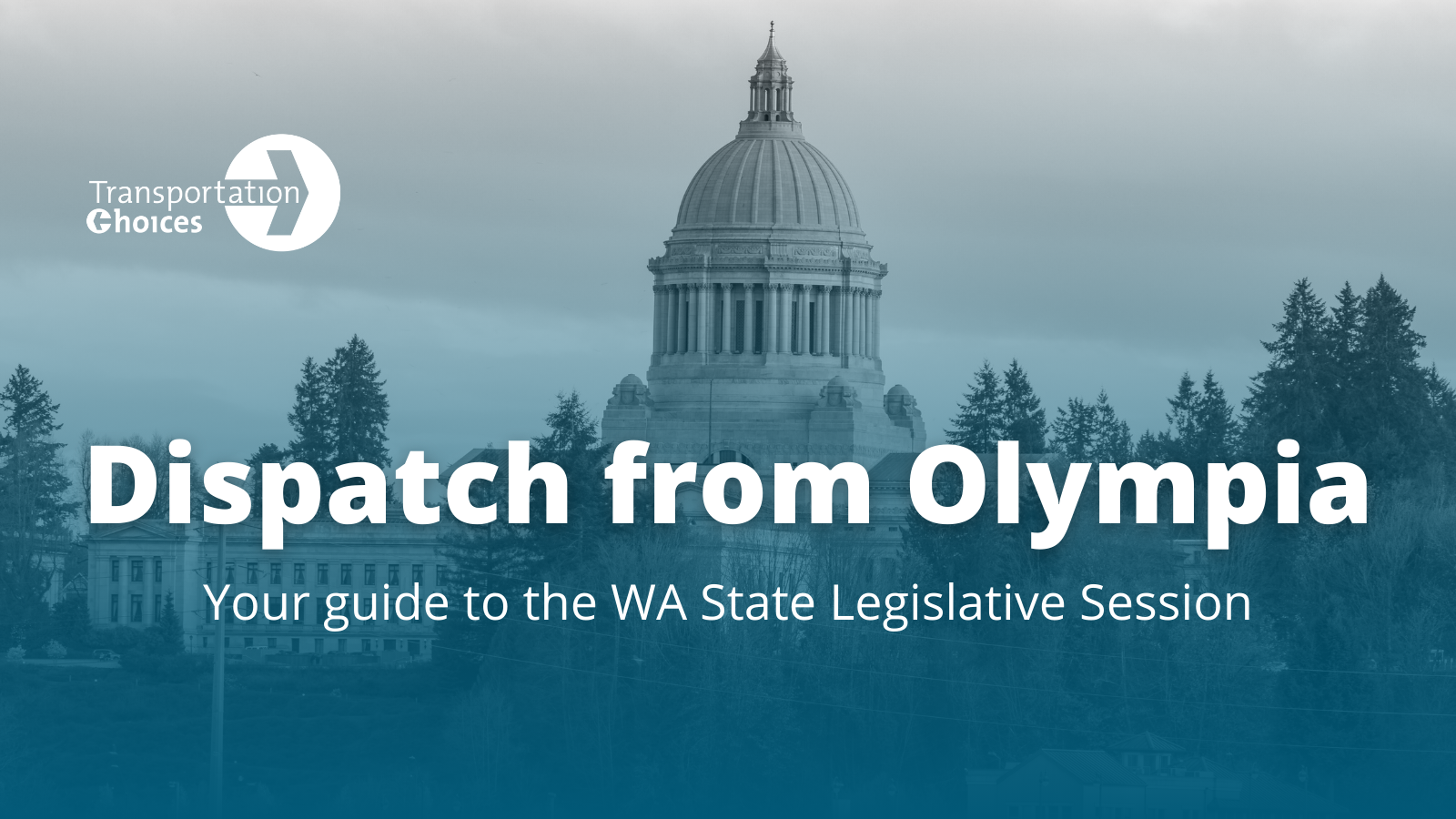
Dear friends,
One week down, eight weeks to go in the 2024 Washington State Legislative Session. Last week, we weighed in to support transit-oriented development, and this week we’re excited to support bills focused on gas price transparency and expanding the kinds of transportation a border fuel tax can fund. Read more about them below and sign in PRO to show your support!
Next week on Tuesday, January 23rd, we’ll be down in Olympia for a press conference to talk about our Free to Walk bill to end jaywalking enforcement, and to release a brand new research report showing disparities in enforcement across the state. Passing Free to Walk (SB 5383) is one of our top priorities of the Legislative Session, and we hope you’ll support it along the way. If you’ve ever been stopped for jaywalking in Washington, please share your story here. And stay tuned for opportunities to testify the week of January 22!
We’re also tracking several ballot initiatives funded by conservative millionaire Brian Heywood. One of these would erase important safeguards on when police can pursue suspects in cars. Another would repeal the Climate Commitment Act, which is a key funding source for the historic Move Ahead Washington transportation package. If the signatures submitted are certified, the legislature must decide whether to adopt the proposal, reject it and send it to voters in November, or send an alternative proposal to voters. The signatures for the police pursuits initiative were recently certified and we expect to hear about the Climate Commitment Act repeal effort this week. We’ll keep you posted on what’s happening and how to stay engaged. Defending this funding for our climate and for transportation is another of our top priorities this Session.
Keep moving,
Transportation Choices
WHAT’S COMING UP THIS WEEK
Support gas price transparency!
Gas prices in Washington are among the highest in the nation – and it’s difficult to tell how much of that is oil companies passing the buck for polluting to consumers while raking in record profits. That’s why legislators are putting forward a bill to ensure better oversight of petroleum markets.
SB 6052 would create a new division within the Washington Utilities and Transportation Commission to conduct independent oversight and analysis of the petroleum market in order to identify design flaws and power abuses and protect consumers.
This bill will be heard in the Senate Environment, Energy & Technology Committee on Wednesday, January 17, at 8 AM.
Expand the kinds of transportation a border fuel tax can fund
Funding multimodal transportation in Washington is notoriously difficult, in part because the State’s gas tax revenues are constitutionally limited to funding roadways. But other fuel taxes could be used more broadly – and that’s what SB 6017 aims to do for one particular border area in Washington with unique geographic challenges.
SB 6017 would expand the use of a voter-approved border fuel tax to be able to fund high capacity transportation and public transportation.
This bill will be heard in the Senate Transportation Committee on Thursday, January 18, at 4 PM.
We’re also tracking: Automated traffic safety enforcement
SB 5959 would allow cities and counties to authorize traffic safety cameras, and would allow non-commissioned officers or public employees to review infractions. It also outlines which kinds of violations can be enforced with traffic safety cameras, including rail crossing, blocking intersections, ignoring a red light, and speeding. This bill was heard yesterday in the Senate Transportation Committee.
From an equity perspective, automated enforcement is a mixed bag. As our partners Whose Streets? Our Streets! write: “Automated traffic enforcement is better than in-person ticketing in many ways, but it is not a perfect solution. For one, it too can create inequitable financial burdens. It also can’t solve the problem of poorly-designed streets that encourage speeding.” Automated enforcement may also be more likely to be concentrated in communities that have faced historical disinvestment and have poorer infrastructure. You can read more on this issue from Whose Streets? Our Streets!
The bill currently includes a provision for cities and counties to do an equity analysis before adding automated enforcement, but doesn’t require them to do an ongoing analysis on the impacts of this enforcement. That’s something we’d like to see added.
WHAT HAPPENED LAST WEEK
A hearing on transit-oriented housing development
HB 2160, a bill promoting community and transit-oriented housing development, was heard in the House Housing Committee last week and in an executive session of the House Housing Committee yesterday.
Thank you to everyone who signed in PRO! We’ll keep you posted about further opportunities to take action. In the meantime, you can read more about why it matters here.




